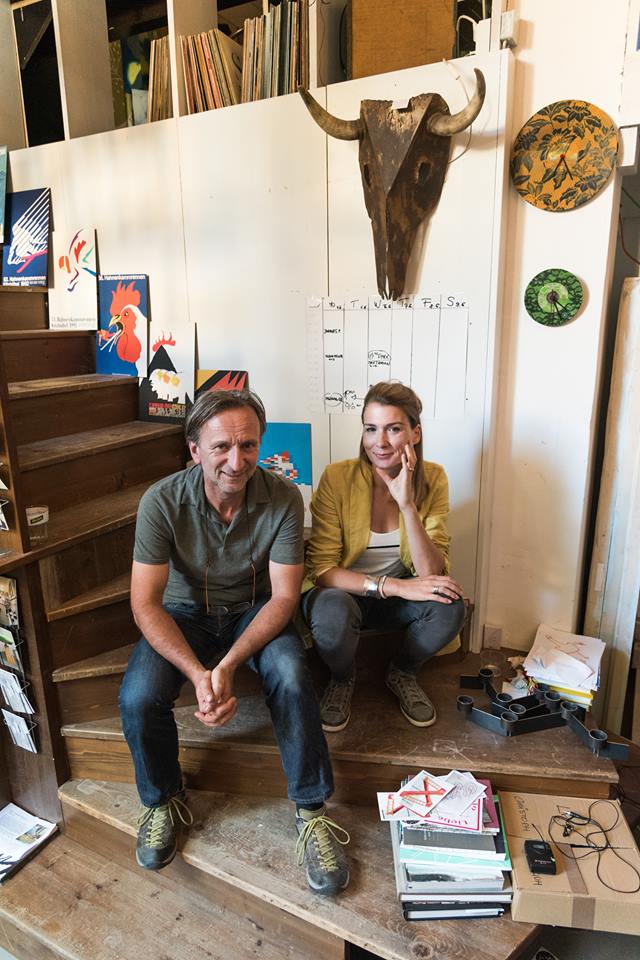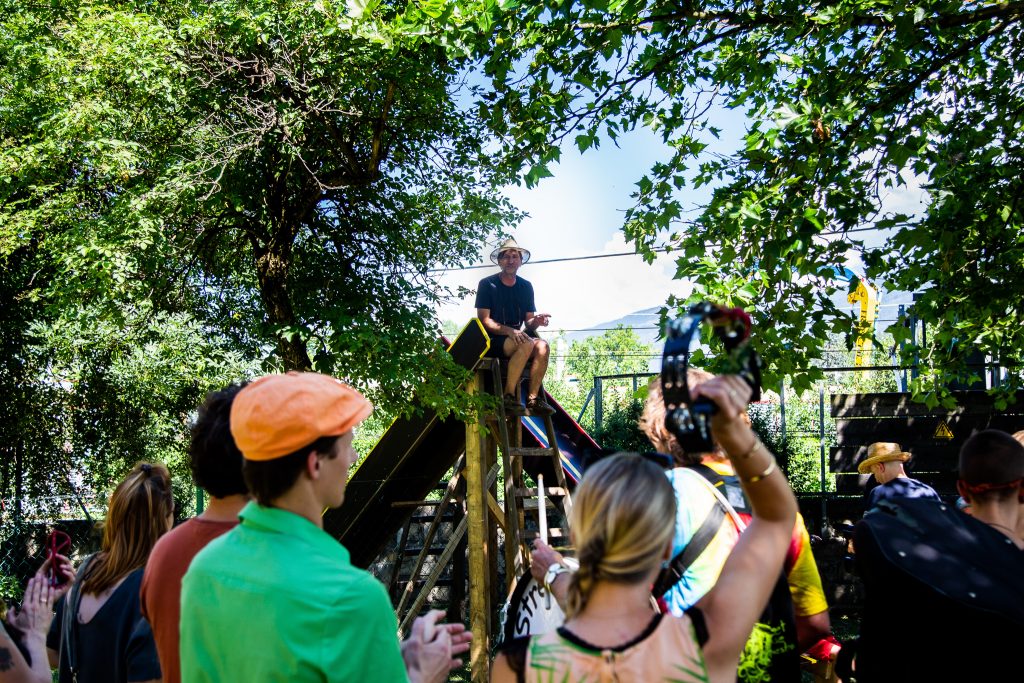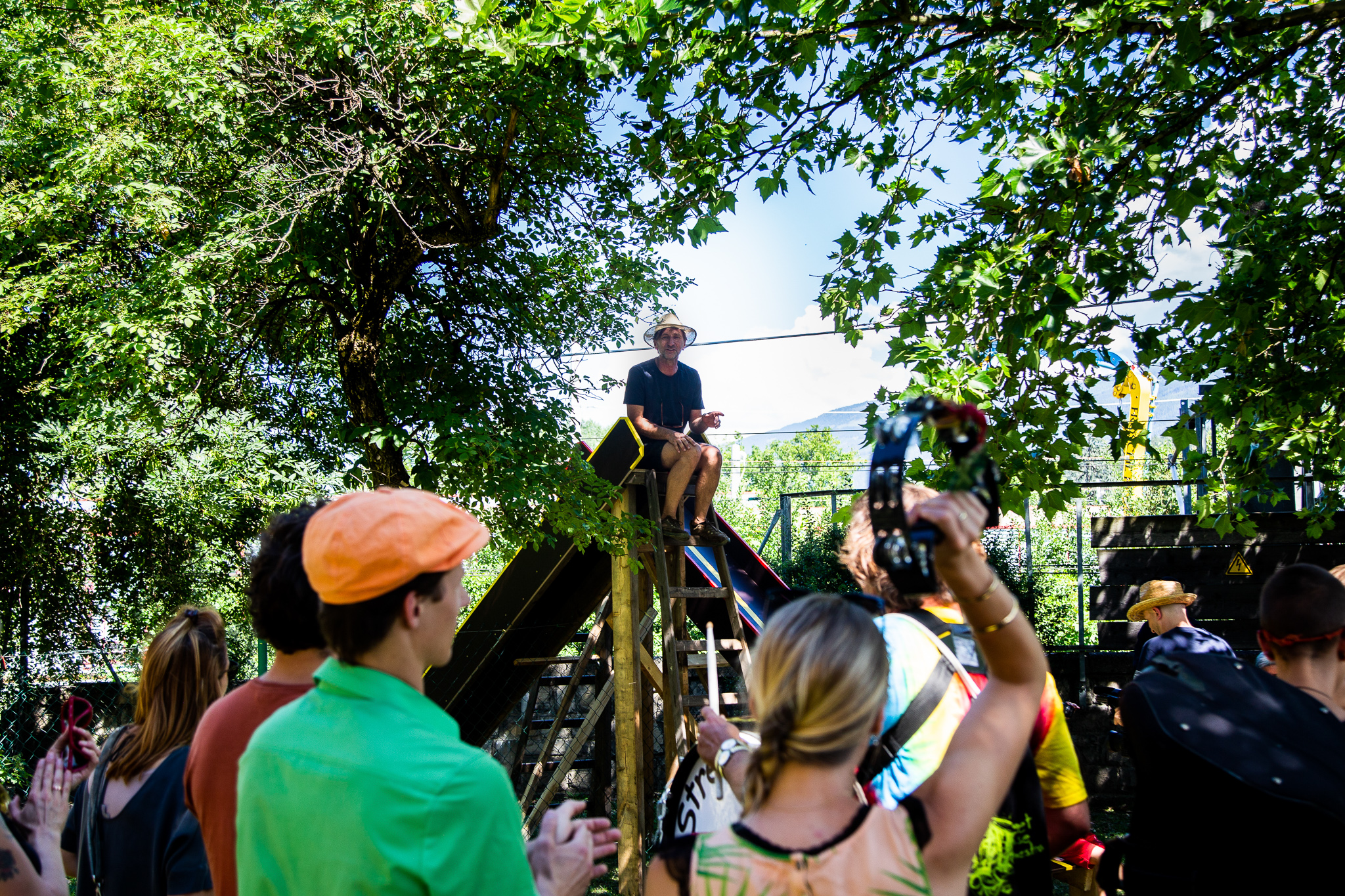An interview with Charly Walter and Danijela Oberthofer Tonkovic from “Openspace.Innsbruck” (Austria)
Charly Walter, the founder of “Openspace.Innsbruck” association, and curator Danijela Oberthofer Tonkovic believe that it is very important to bring people of different backgrounds together these days in order to stabilise societies. In the following interview, they share their thoughts on interdisciplinarity, community building through culture and arts, and the importance of cultural exchange.

- Photo by Berta Tilmantaitė / Nanook
Could you tell us a little more about “Openspace.Innsbruck”, its concept and activities?
Charly Walter: We are a private association “Verein zur Förderung der Alltagskultur” that runs “Openspace” – approximately 60 m2 of polyvalent space indoor (+ outdoor) in Innsbruck. Our aim is to provide space, organizational and professional support for local, national and international artists and creators, working on the edge of arts-design-sound. Every year since 2012, we curate 5 exhibitions, balancing between art and design, as well as 30 events celebrating music, film, literature and art.
We strive to maintain healthy communication both with our community, and the professional environment as well. Working on diverse projects, art directions and locations, we are able to reach a wider audience. Deep in the heart of neighbourhood and working for community, we also intend to bring the arts and education to the audience, which frequently remains left out of the scope of contemporary cultural activities.
Through your activities, you try to influence the community and migrant policies in Innsbruck. Could you tell us a little more about this idea? How have you come across it and how do you try to implement it?
Danijela Oberthofer Tonkovic (D. O. T.): In the year of the great migrant wave to Europe of 2015, “Openspace” was active in planning activities for the “Migrant Home” infrastructure (together with other organisations from our community). We were responsible for planning the inclusion of refugees in our neighbourhood by providing cultural activities. We were convinced that this is the right way to help people, who had been forced to leave their homes for different reasons, and the right way to naturally provide a basis for healthy and humane communication between the neighbourhood and its new residents.
After a period of silence, due to various political reasons, with the current project “MagiC Carpets”, we are revitalising our initial idea. We are really happy that through various turns, this idea and mission has found its way back to us! We are more than ready to start the “MagiC Carpets” journey in this phase of production and implementation, working with artists in residence, local artists, and the great local support structure.
One of the cornerstones of “Openspace.Innsbruck” is interdisciplinarity. Why do you think combining different disciplines, as well as gathering different audiences together, is important in today’s world?
Charly: As a result of personal relations, work and other complicated reasons, life has become increasingly fragmented for many people in our society. To manage this new way of life, we must think and act in an interdisciplinary way. Artists have always been the magicians who show us more than we usually expect. Bringing people of different backgrounds together is very important to stabilise our fragile societies these days.
How does the local Innsbruck community engage with culture?
Danijela: Local Innsbruck communities engage with culture quite well, though, it depends on the part of the city and the ways the audience is accessed, motivated ore included. It depends on other various circumstances – for example the level of education, economic status, the level of society development, cultural heritage, tradition, origin etc. However, it also depends on what is offered, and whether is it affordable and accessible.
Innsbruck and its surroundings are home to over 130 privat initiatives that deal with culture in one way or another. Most of these initiatives have been founded by individuals or groups, as passion or hobby and all of this people are mostly working on a voluntary basis. These cultural initiatives are participating in the public cultural-political discourse, referring to the cultural sustainability and making a important multilayered contribution to the development of Innsbruck cultural scene. The true face of cultural initiatives activity that I know in Innsbruck – advocates solidarity, criticism against any kind of discrimination and stays for cultural diversity.
An exemplary practice in Openspace includes – people approaching us with an intention to organize diverse cultural activities in our space, since it is open and free to use. However, sometimes we approach them, like, for example, in the case of “Magic Carpets project”, where we are trying to remove barriers, communicate, and include community on various levels of decision-making, processes-development, but also leave them with something long-lasting and directly applicable.
How do you think intercultural exchange might inspire cultural community building?
Danijela: Intercultural exchange has proven so many times that it can easily and instinctively inspire cultural community building. It is one of the simplest keys to achieve this noble purpose.
The basis for successful intercultural communication is emotional competence and intercultural sensitivity. Intercultural competence is the ability of an individual or a group to act successfully and appropriately with people from other cultures. Our neighbourhood and our city are very multicultural, and therefore, our everyday-life challenge is to contribute to the development of our society through our call. Interculturality is something that is being built, and we – “Openspace” – like to build solid constructions.

